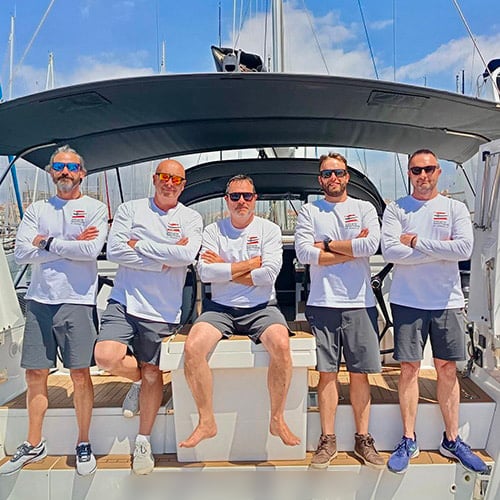
Is it possible to become a yacht captain at 30, 40 or 50+?
3 October 2025
Sail to new horizons: become a captain!
6 November 2025In 2026, the nautical sector is experiencing a period of unprecedented tension on the job market. Finding qualified personnel for the boats – whether captains, mates, mechanics, on-board cooks or hostesses – has become a real challenge for employers.
There are many reasons for this, including retirement, post-COVID retraining, lack of specialized training, and the attractiveness of working ashore. And yet, the need is exploding, particularly in yachting, professional yachting and private cruising.
Faced with this reality, it’s essential to adopt a modern, strategic approach to maritime recruitment, combining digital tools, partnerships and skills enhancement.
Clearly identify your on-board needs
Before any search, it is crucial to define the ideal profile according to :
- Size and type of vessel (yacht, sailboat, catamaran, workboat…)
- Duration of assignment (one-off delivery, season, annual contract)
- Technical skills (navigation, mechanics, reception, maintenance, catering, etc.)
- The level of certification required
A well-defined position attracts more qualified candidates, and saves time in the selection process.
Use the right recruitment channels
Traditional channels such as advertisements or word-of-mouth are no longer sufficient. In 2026, employers must turn to specialized solutions:
- Marine networking platforms such as Capt’n Boat which directly connects owners, agencies and certified captains.
- Professional networks (LinkedIn, nautical forums, specialized Facebook groups).
- Maritime schools and training centers, real pools of trained and available talent.
Valuing skills and experience
The best candidates are not necessarily those who have “sailed the most”, but those whose skills match your needs.
Rate :
- Official qualifications (certificates, STCW attestations),
- Shipboard experience (types of vessels, duration, positions held),
- Soft skills: rigor, communication, adaptability, team management.
- Check the candidate’s references and feedback from previous experience (for example, on the Capt’n Boat platform, captains are evaluated after each mission by their employers/owners – see the video below).
And don’t forget to highlight recent training courses, a guarantee of competence and professionalism.
Simplify the hiring process
All too often, administrative procedures slow down recruitment in the boating industry. To attract the right profiles :
- Be responsive: qualified sailors receive several proposals at once.
- Simplify onboarding formalities: clear contracts, length of assignment, working conditions.
- Offer attractive conditions: fair remuneration, pleasant working environment, recognition.
Platforms like Capt’n Boat manage all these aspects for you: advertisement publication, patent verification, electronic signature and integrated insurance.
Building long-term crew loyalty
In a tight market, the real challenge is not just to recruit, but to retain employees.
Offer your employees :
- A clear vision of prospects (training, promotion, next season).
- Work-life balance – an essential criterion for today’s generation of seafarers.
- On-board dialogue based on trust and respect.
A stable, motivated and recognized crew contributes directly to the safety, customer satisfaction and reputation of your boat.
Maritime recruitment in 2026 requires a combination of modernity and good seamanship. In a context of scarcity of profiles, employers need to rethink their methods: clarify needs, diversify search channels, promote training and offer attractive conditions.
Solutions do exist.
At The Yachter, we train the captains of today and tomorrow through demanding demanding and recognized professional training designed to meet the real needs of today’s and tomorrow’s maritime recruitment market.
Together, let’s sail the talents of the nautical world.



